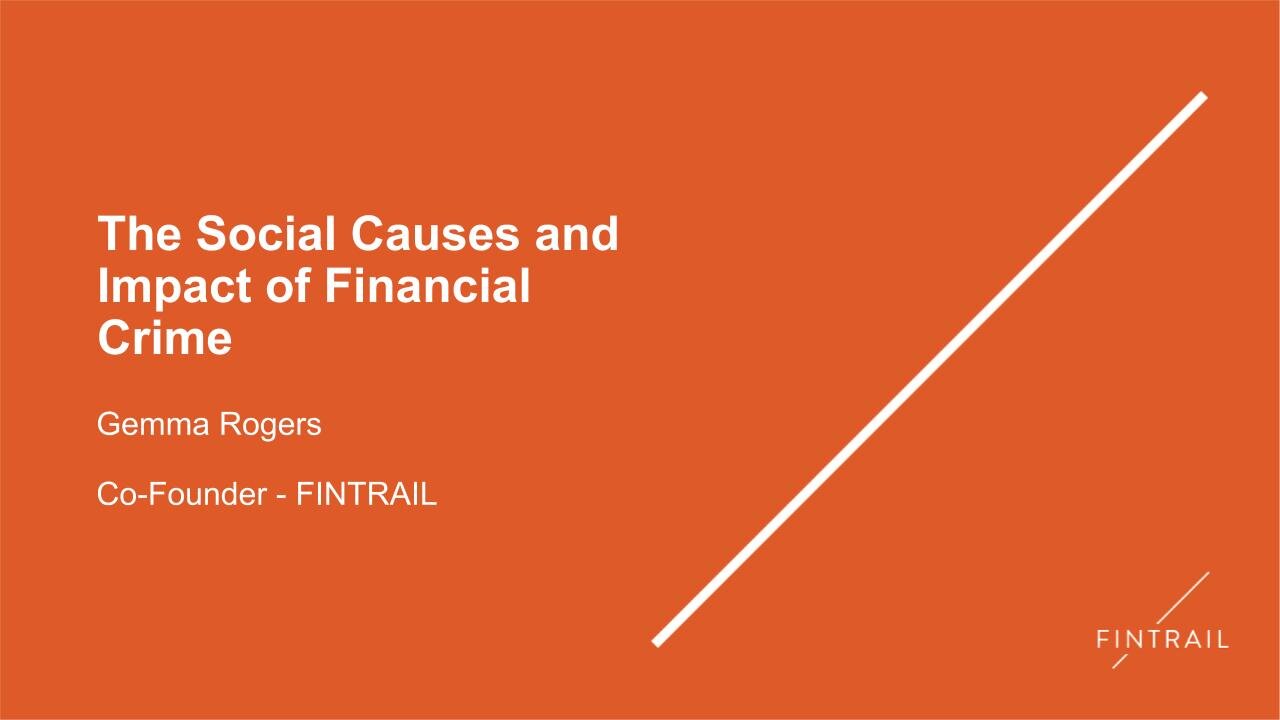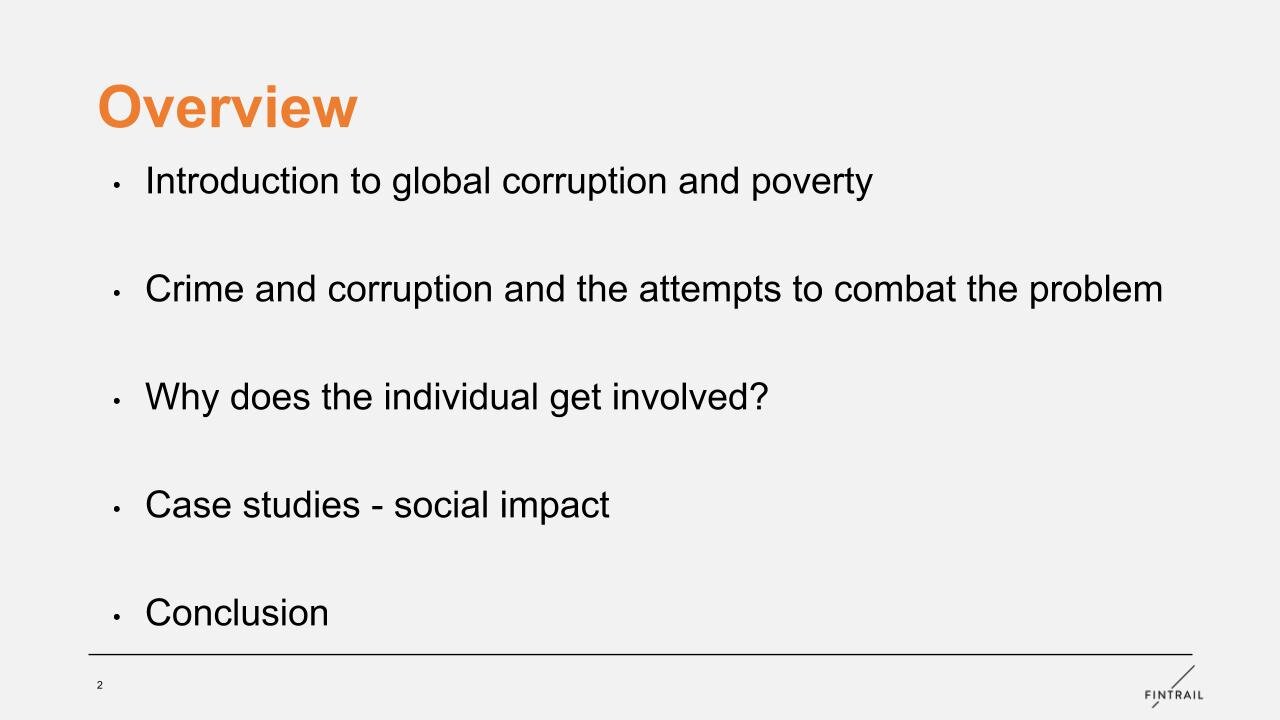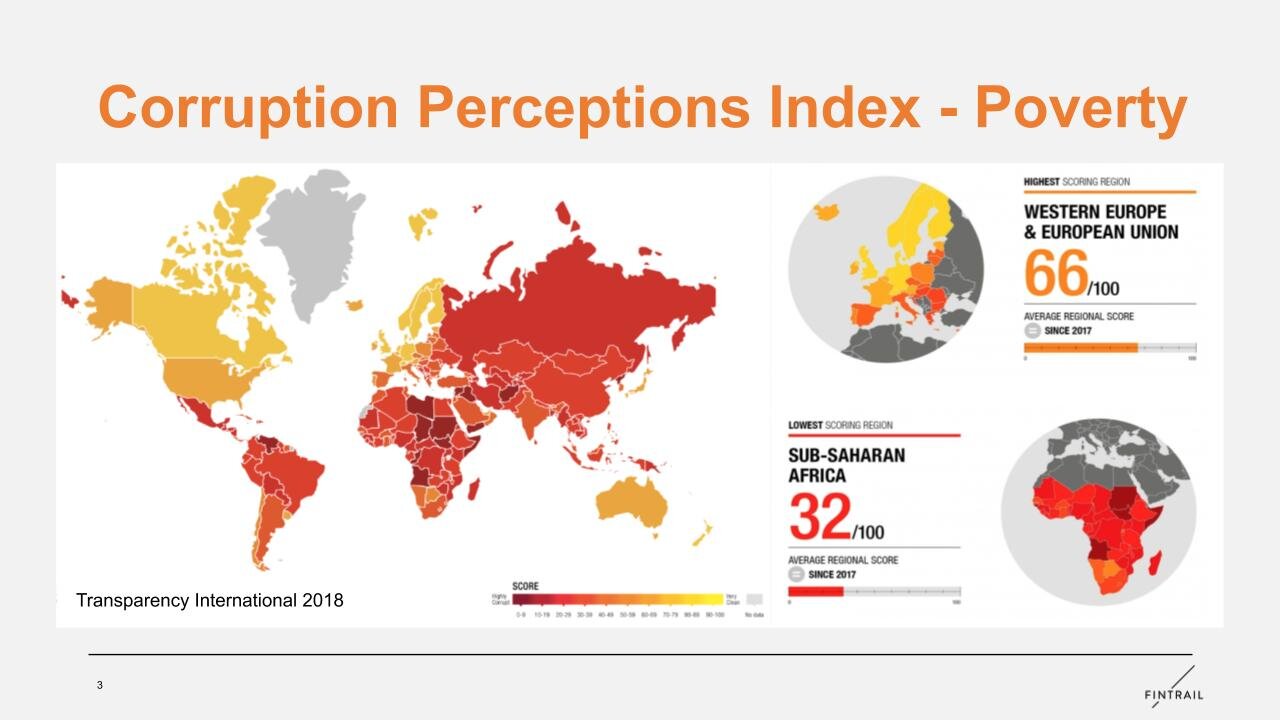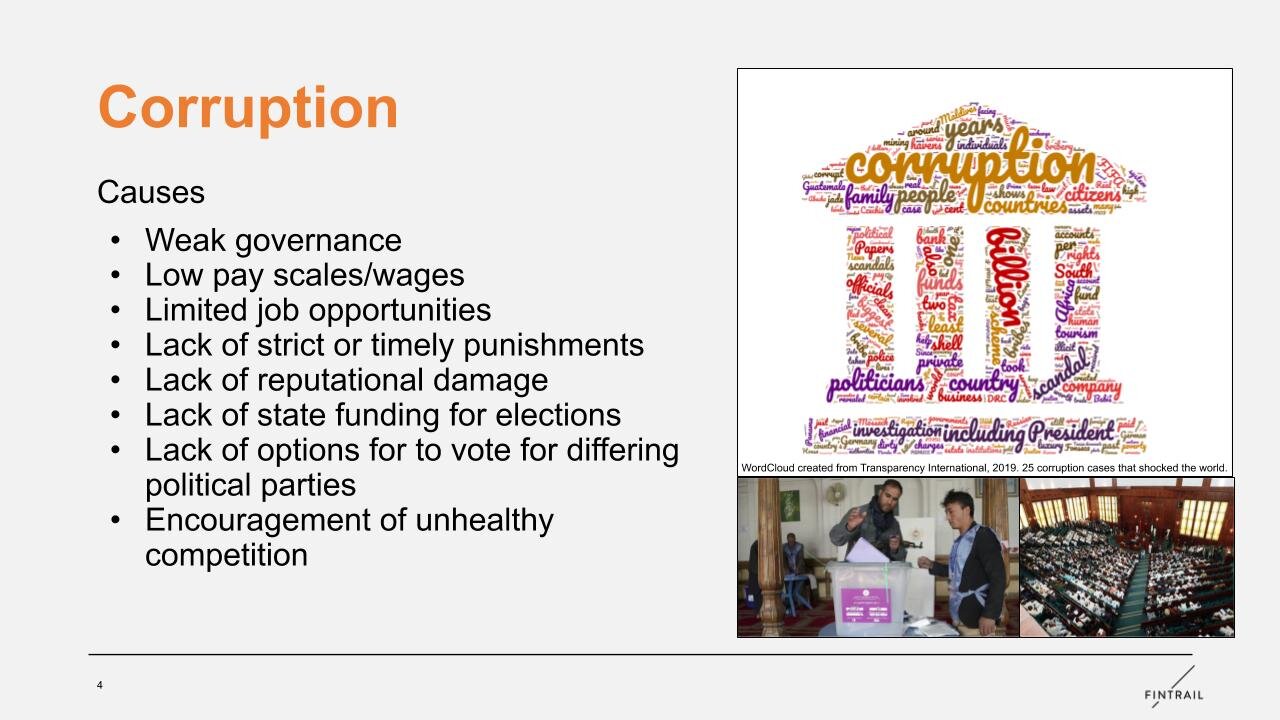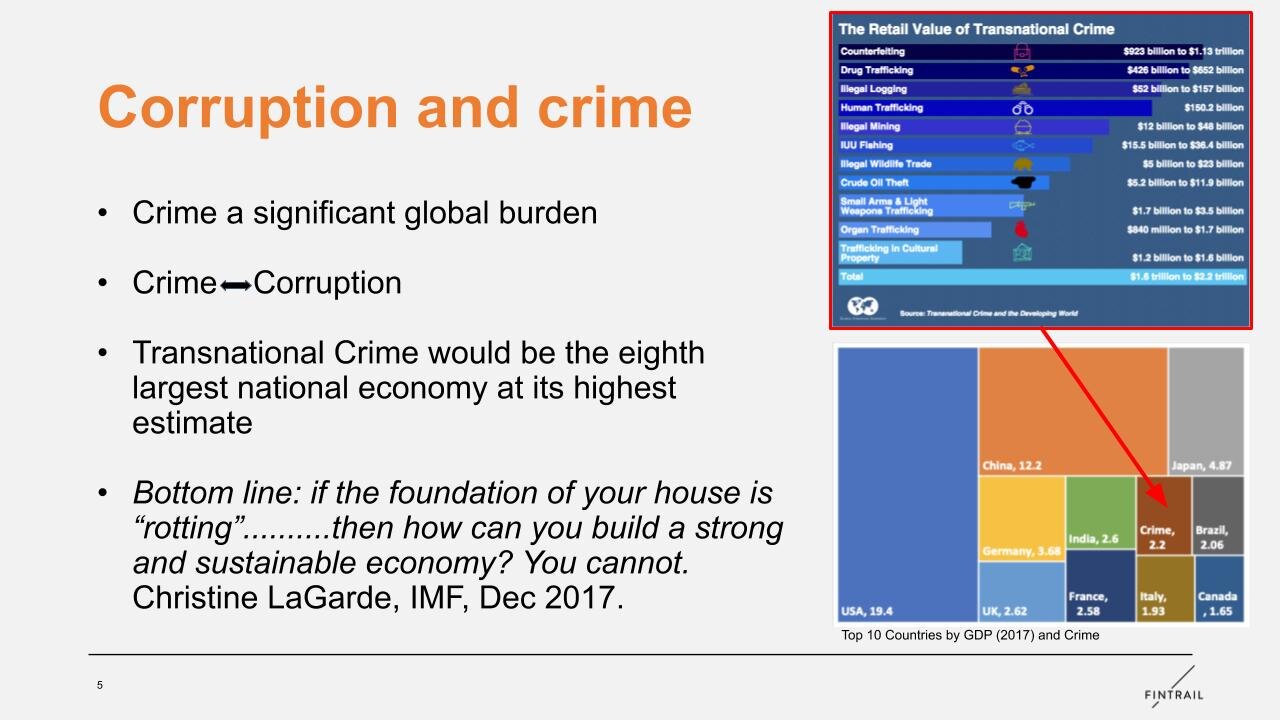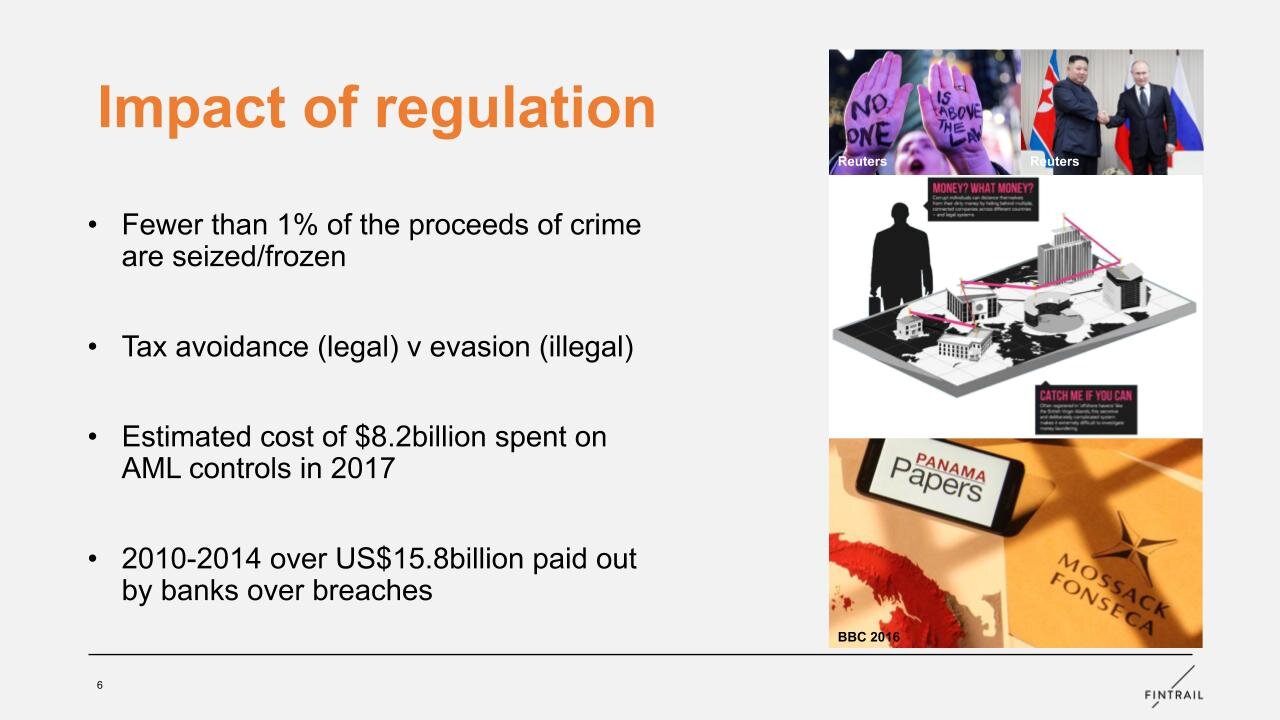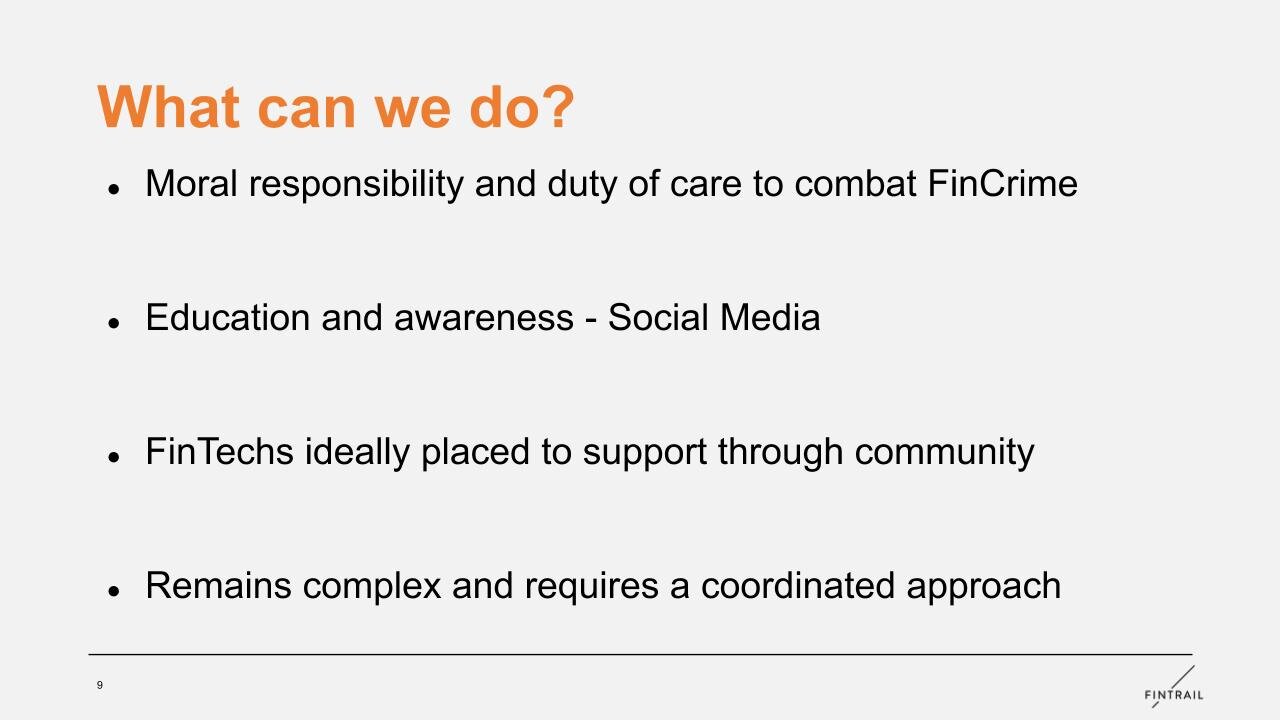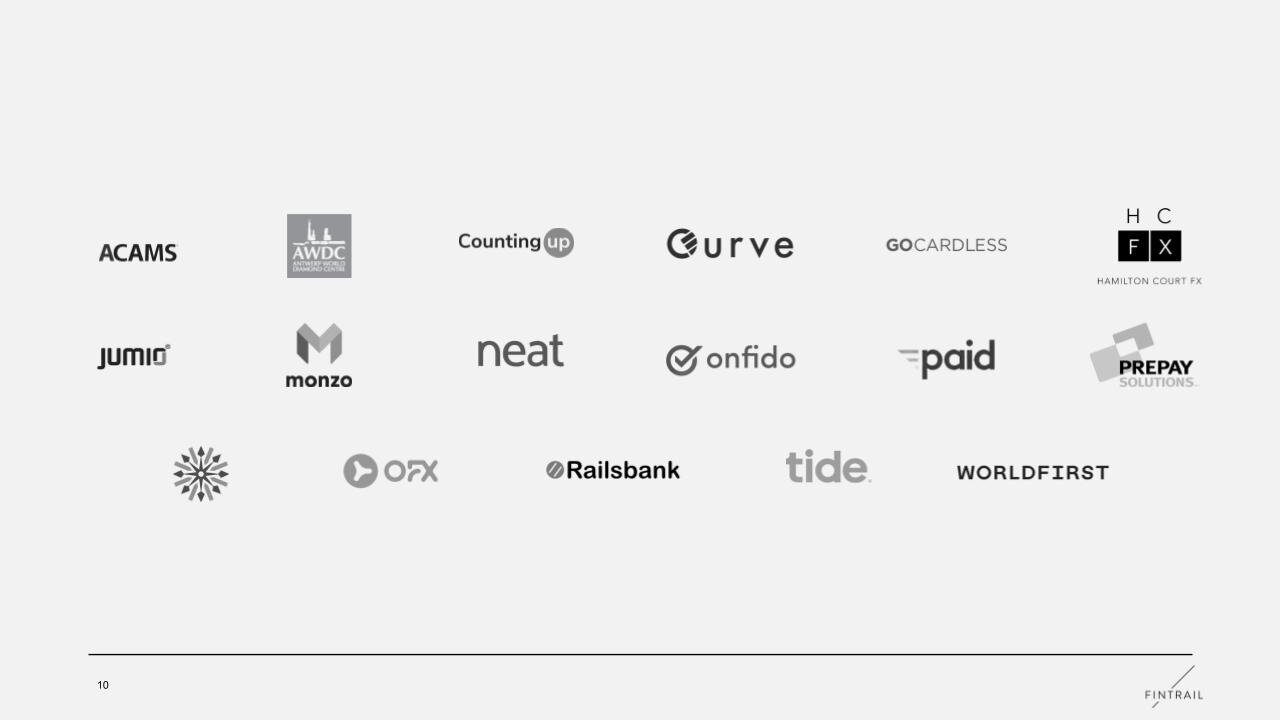At FINTRAIL, like many of the clients we work with, we like to be as transparent as possible about our plans, successes and failures. So with that in mind, Gemma and I wanted to write a quick summary of 2019 and give you a view on what we are planning for 2020.
Thanks to our amazing team, partners and clients we had a pretty awesome 2019! We worked with over 30+ different FinTech and financial institution clients across Europe, Asia, North America and Latin America.
Amongst other things, the FINTRAIL team have helped our clients build compliant FinTech products, transform legacy financial crime infrastructure, conducted audits and worked with leading technology, people and process to change how modern financial service providers can address the threat of financial crime.
Additionally, we have continued to invest in and grow the global FinTech FinCrime Exchange (FFE), we now have over 170+ FinTech firms big and small that have joined the fight against financial crime across the US, Europe and Asia.
As we continue to grow as a firm, we are of course going to see some challenges. Firstly, setting a cohesive international strategy is hard, especially as a small and very busy team. Bringing the US and Asia markets online brought significant challenges, some of which we had just not thought about. With so many ideas on what we could and can do, it can be difficult to curb our enthusiasm sometimes. I think it would be fair to say that 2019 was a year of learning on this topic but we have taken that onboard and are now accelerating in to 2020.
We built out our team significantly - clearly this is a brilliant problem to have - but we did have to think more carefully about the culture and structure of our team. Just throwing bodies at an opportunity is not the right answer but we really think we have made great progress in refining what the FINTRAIL organisation and culture looks like and this will continue to be a constant priority for us moving forward.
Finally, I think it would be fair to say that as co-founders, we learnt a lot about ourselves in 2019. We have put a lot of effort into FINTRAIL and it is sometimes hard to step back and empower your team to take that forward. We are super fortunate that we now have a team that believes in our mission and have the enthusiasm and capabilities to take that forward. As a team and individuals we are not going to get everything right the first time but we are committed to learning at every opportunity and we aim to make FINTRAIL one of the best places to work, doing super important work for the best clients in the world.
However, this is all history and we cannot take our eye off the ball. So 2020 is going to be an even bigger year for FINTRAIL our clients and community we support and and this is how we are going to do it:
Continue to invest in our consulting teams to bring our clients the best and most relevant expertise and support. In 2019 we grew our global team and launched our businesses in the US and Asia; we have seen a rapid growth in demand for what we do. Without the right people, culture and infrastructure we simply cannot do what we do.
In Asia, led by our local Managing Director Payal Patel, we are already working with some of the largest regional players to ensure they build robust anti-financial crime provisions into their products and business plans. Payal will be building out our regional offering and scale her team across the region over the course of 2020.
In the US, led by our local lead Megan Millard, we have been working with established global players to transform their vision of compliance and anti-financial crime as well as working with new and highly innovative businesses to ensure they start their journey in a secure and compliant fashion. There will be a big focus on the US market in 2020 as we continue to grow the business there.
In Europe, led by our local Managing Director James Nurse, we have been supporting clients big and small through their compliance and anti-financial crime journey. This shows no sign of slowing down and we will be bringing our specialist skills to new markets in the region and continuing to grow the team out to cover the different European jurisdictions.
Data, Data, Data - there is no question that the fight against globally connected financial crime requires us to take a connected, community and data driven approach to have any meaningful impact. Over the last 3.5 years through the FFE we have seen the power of connecting people and sharing insight.
We have been exploring what FINTRAIL and our FFE community can bring to this challenge and we think we have a way forward.
We have now agreed a partnership with one of the leading global RegTech providers to start connecting our global community in that fight through the development of real-time threat data sharing. Gasps I hear, what about data privacy? Well this is not going to be some half-baked attempt to deliver data sharing. FINTRAIL and our partner are doing this properly - we have an existing community of motivated and technically savvy FFE members who are proactively asking for this, we can leverage our connections with global regulators, law enforcement and wider privacy community to get this right. Combine that with leading technology and world-class technical expertise and we have a solid combination.
Are we going to solve it overnight, absolutely not but It is going to be a key priority for us and the FFE community over 2020 and coming years. More specific details will follow on this topic in the coming weeks.
Continue to grow the community. The FFE is unique. It is the only global FinTech community dedicated to the fight against financial crime - and it is free. It is something that all of us at FINTRAIL are extremely proud of and we would not be able to make happen without the support of our partners at Regulatory Data Corps (RDC). We have big big plans for the FFE for 2020:
Meet-ups - in 2020 we will be hosting somewhere in the region of 20 meet-ups across the three regions and our aim is to make these even more relevant to the community. We will continue to strive to bring the global FinTech community together in a common cause and have a meaningful impact on the scourge of financial crime.
Podcast - yes, that’s right 2020 is the year we are launching our FFE podcast series and it looks like it will be a cracker. We are going to use this opportunity to dive into the topics that matter to members and learn more about the people and issues that impact our lives every day. The 12 part podcast series will feature all three FFE regions and we can't wait to see this mature for the FFE community and other interested parties that want to learn a bit more about it.
Expert Working Groups - we want the FFE to have a voice that has tangible impact. In 2020 we will be hosting a series of Expert Working Groups that will bring together Compliance and Anti-Financial Crime leaders from across the FinTech and financial services industry to dive deep into the key topics affecting the industry and come up with a common way forward. We will then use that platform to bring about change through our engagements with partners, regulators, law enforcement and customer communities.
Engagement with global law enforcement - in 2019 our team spent a significant amount of time engaging with law enforcement and regulatory enforcement bodies from around the world. This was about spreading the word about the FFE and educating on FinTech, but also the opportunities to collaborate effectively. We have built amazing relationships with partners such as the Metropolitan Police, City of London Police, HMRC, National Crime Agency, Europol, Department of Homeland Security, Federal Bureau of Investigation and many many others around the globe. This will continue into 2020 with even more vigour. The private sector has a critical role to play in supporting law enforcement efforts against criminality in all its forms and the FFE community is at the front of that effort.
FFECON - we had a ball at FFECON19 and based on the feedback we had after the event from all involved it is something that will be back for November 2020 (block your diaries). Our goal for 2020 is not necessarily to make this bigger for the sake of it, but rather focus on the quality of this event for our community and that is what we will achieve. In addition, we will be taking FFECON on the road for 2020, in either Asia or US market (TBC, so stay tuned) with the aim to make this forum accessible to the growing community and interested parties globally.
So there you have it, a transparent roadmap of what to expect from FINTRAIL and the FFE in 2020. It is going to be a blast but seriously hard work and I know the team at FINTRAIL are super focused on making this another year to remember. We can’t wait and on behalf of the team at FINTRAIL we wish everyone all the best for 2020!
If you would like to discuss the topics in this post, or if you want to know more about FINTRAIL and our 2020 plans, please feel free to get in touch with one of our team or at contact@fintrail.co.uk.





































